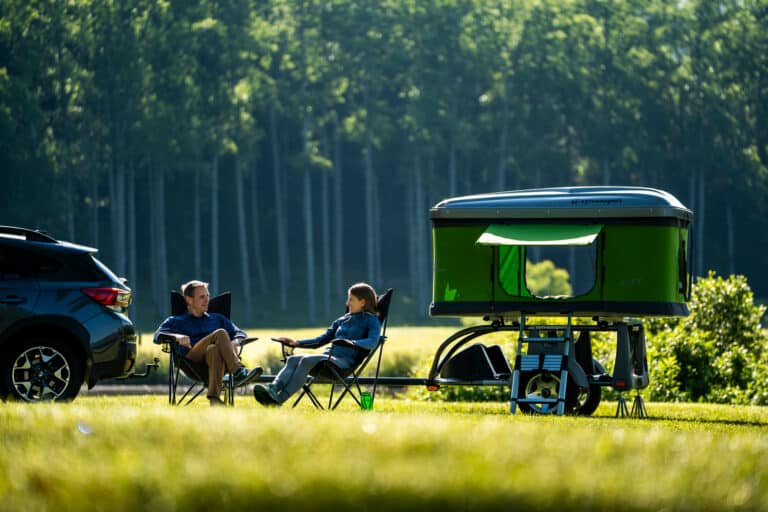BY JEDD FERRIS
He’s the rookie who put a spark of post-Lance greatness back in American cycling in this year’s Tour de France. Going into stage three, 27-year-old Will Frischkorn, who grew up in Charleston, W.Va., and trained extensively as a high school student in Charlottesville, Va., was in 122nd place. But by the end of the day, Frischkorn was in third, the result of a gutsy performance that found him leading for more than 200 kilometers and just being edged out at the end by veteran French rider Samuel Dumoulin.
He still landed a spot on the podium and earned the distinction as the day’s Most Aggressive Rider. It was a milestone for the young rider who almost quit cycling four years ago because of the sport’s seemingly insurmountable presence of doping. Frischkorn decided to stay active when he was asked to join Jonathan Vaughters’ Slipstream-Chipotle cycling team (now Garmin-Chipotle), which tests riders daily to ensure they’re drug-free. Known as a strong all-around support rider, Frischkorn helped two of his teammates finish in the top 20 of this year’s Tour.
———-
BRO: What are your overall impressions a few days after soaking in your first Tour de France?
WF: It was an amazing experience. When you start cycling as a kid, the Tour is the dream, and to be a part of a team that played an active role in the race was really exciting. The race is on a scale that is different from anything else in cycling. On a day-to-day level, it’s just another bike race. But there is pressure and stress in that, if you have a good ride, it can be a career-changing event.
You had that type of performance on day three. What motivated the big push?
It was so close. I’ve replayed the last couple of kilometers a number of times in my head, but looking back I can only be excited. The first week is really open, and I was going after the breakaways. I was essentially lucky to get the right moves on the right day that stuck to the line. It was amazing.
What was the biggest highlight in your first Tour?
It was actually riding into Paris on the last day. The start of the stage is like a training ride for the first 90 kilometers into Paris, but then as soon as you hit the city the race turns on. You’re suddenly riding on some of the biggest boulevards in one of the biggest, most beautiful cities in the world. There are masses of people gathered around creating an amazing energy. For the last hour and a half I was riding with goose bumps. I’ve never felt anything like that on a bike before.
You almost quit professional cycling because of the prevalence of dopers. Have you found a new lease on life within the sport?
There was a year where I thought about giving up. It’s a sport where you feel like you’re constantly facing an uphill battle. I’ve rediscovered the love that was there originally, and I couldn’t be more blessed to be a part of this program. I came on to Slipstream when it was a first-year professional program. I’ve grown with it, and progressed in step.
Is the doping paradigm really changing?
In the past two years there has been a shift in mentality. The penalties are harsher. You can actually go to jail for cheating now. Everybody finally realized that if things didn’t change, pro cycling wasn’t going to exist five years down the road. There were a few high-profile cases this year, but that’s part of the painful process of cleaning things up. Testing is finally at a place that is ahead of riders. The dopers this year were the minority in the race, and to have them rooted out is a good feeling, and it says something about where the sport is headed.
What is the doping dialogue like now among the riders?
It’s finally at the point where it’s not even being discussed that much. People seem much more focused on racing and the job at hand.
What are your favorite places to ride in Virginia?
I did a lot of riding when I lived in Charlottesville. I miss all of the farm roads. It is some pretty choice terrain. I would usually just head out of town and ride above Free Union for a couple of hours. I would also go out to the Blue Ridge Parkway and do the hills around Montebello and Afton.
How do you feel about mostly playing an all-around supporting role on your team?
There’s a certain point in a rider’s career when you realize where you fall in the hierarchy of the sport. There are very few leaders and champions. The rest of the team is there as support. There are times when everyone gets an opportunity. That’s how I’ve fallen in and where I fit. Cycling is a team sport more than most people realize. A victory within the team is a team victory. There’s an amazing satisfaction in riding selflessly for a leader. As odd as this may sound, it’s as gratifying as winning the race yourself.







